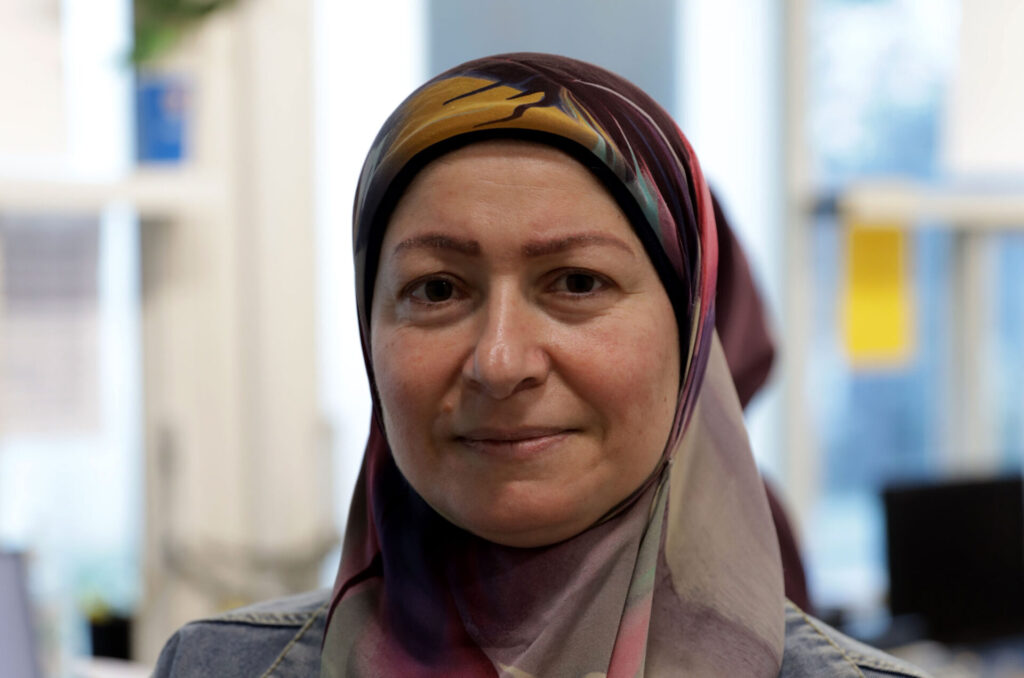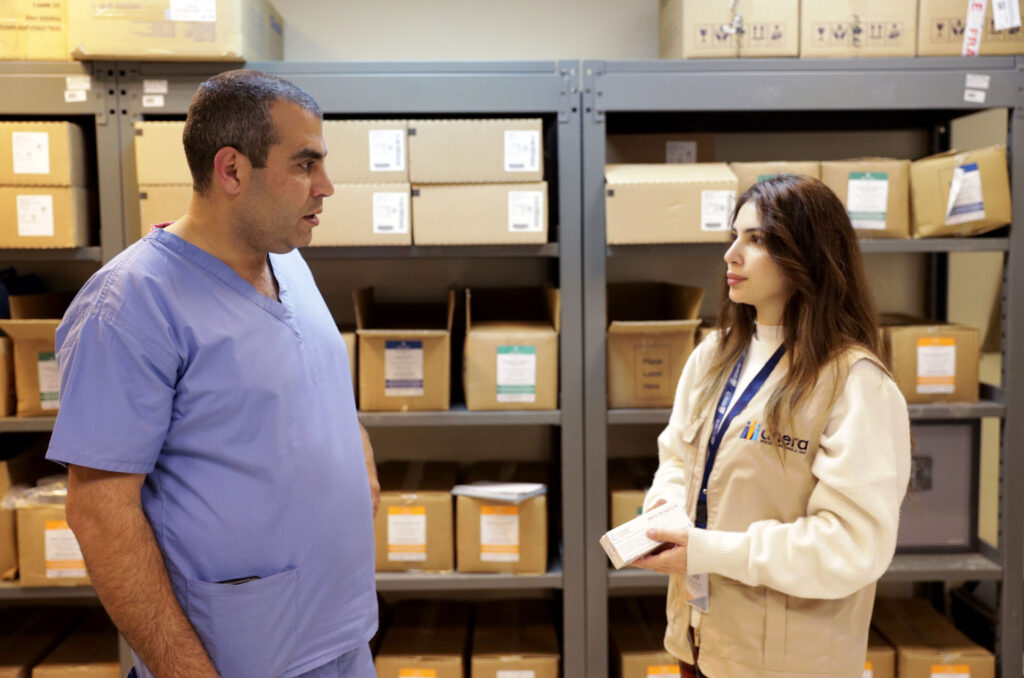Mar, 2009
A magazine opened leisurely across his lap, Marwan Youssef relaxes in the soft light of a Lebanese morning.
In his white turtle neck, his bald head edged with salt and pepper stubble, he looks the part of a grandfather relaxing in bed. But a few feet away, Youssef’s blood circulates through a machine, removing the toxins his diseased kidneys are no longer able to filter.
“I have been coming here since January 2007,” Youssef said. “I was referred by another hospital for dialysis, because this is the only one that offers that.”
“Here” is the Al Hamshary Hospital in Saida, southern Lebanon. One of five hospitals established by the Palestine Red Crescent Society to address the health needs of the estimated 300,000 Palestinian refugees living in Lebanon, Al Hamshary is a unique facility. And while its 80 beds provide valuable care for those in need, its dialysis department is the only one in Lebanon for Palestinians – the last stop for patients like Marwan Youssef. Drawn as they often are from distant towns and villages, the commute is not easy.
“I come here from Tyre, so it takes about 45 minutes,” Youssef said. “I have to take two cabs, and I have to come three times each week.”
But Youssef and the 57 other patients currently receiving care here have no other options. Reliant upon dialysis, most for three days each week, they come because the treatment at Al Hamshary is free, made possible in part by donations of medication and medical supplies donated by AmeriCares and delivered by Anera.
Costing as much as $100 for each treatment otherwise, the service is invaluable to the patients of Al Hamshary. But the poverty that accompanies life for most refugees in Lebanon is in large part responsible for the fact that they are here at all, says Dr. Ahmed Jindawi, Head of the Kidney Dialysis Department.
“There is a lack of awareness and prevention within the Palestinian community,” Dr. Jindawi said. “The other problem is that even if they are aware, they don’t have the money to get the medications they need.”
Marwan Youssef’s case is typical. Diabetic since 1985, an ailment that starts many down the path to kidney failure, Youssef says he began experiencing other symptoms about five years ago.
“I was suffering from terrible headaches and nosebleeds,” Youssef said. “That’s when I went to my doctor and he told me I had hypertension.”
Recognizing the many needs that exist in Al Hamshary, Anera’s deliveries of donated medical supplies and medicines supports the facility with the Bisosepralol and insulin Youssef takes daily, aimed at treating the hypertension and diabetes common to dialysis patients. Anera and partner Health Care Society provide quarterly shipments of the medications to Al Hamshary, as well as medical supplies like tubing and filters for the site’s 16 dialysis machines – including the one now whirring gently beside Youssef’s bed. No longer able to work, Youssef says he depends now on his wife and his grown daughter to care for him. It is not easy, he says, but despite the challenges he faces he worries more for the staff of the Al Hamshary Hospital, who check in on him and as many as 15 other patients continuously during their four hour dialysis treatments.
“Service here is excellent, but they need more staff to help,” Youssef said. “They work so much that they get so tired by the end of the day.”
Despite his humor, Youssef knows full well the impact the care has on his own life. Asked what he would do if he could not access the care offered by Al Hamshary, Youssef smiles softly before answering.
“I would leave it up to God,” Youssef said.


